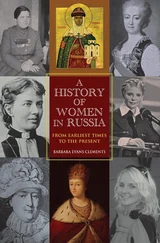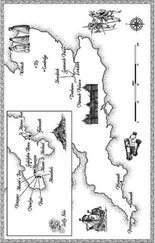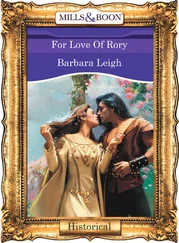Rory Clements - Martyr
Здесь есть возможность читать онлайн «Rory Clements - Martyr» весь текст электронной книги совершенно бесплатно (целиком полную версию без сокращений). В некоторых случаях можно слушать аудио, скачать через торрент в формате fb2 и присутствует краткое содержание. Жанр: Исторический детектив, на английском языке. Описание произведения, (предисловие) а так же отзывы посетителей доступны на портале библиотеки ЛибКат.
- Название:Martyr
- Автор:
- Жанр:
- Год:неизвестен
- ISBN:нет данных
- Рейтинг книги:3 / 5. Голосов: 1
-
Избранное:Добавить в избранное
- Отзывы:
-
Ваша оценка:
- 60
- 1
- 2
- 3
- 4
- 5
Martyr: краткое содержание, описание и аннотация
Предлагаем к чтению аннотацию, описание, краткое содержание или предисловие (зависит от того, что написал сам автор книги «Martyr»). Если вы не нашли необходимую информацию о книге — напишите в комментариях, мы постараемся отыскать её.
Martyr — читать онлайн бесплатно полную книгу (весь текст) целиком
Ниже представлен текст книги, разбитый по страницам. Система сохранения места последней прочитанной страницы, позволяет с удобством читать онлайн бесплатно книгу «Martyr», без необходимости каждый раз заново искать на чём Вы остановились. Поставьте закладку, и сможете в любой момент перейти на страницу, на которой закончили чтение.
Интервал:
Закладка:
Early that morning, Herrick had been arraigned before magistrates and then left to ponder his fate in Plymouth jail until trial, which would be a matter of two or three days; execution would follow swiftly. Shakespeare felt that this was a matter best dealt with locally; Mr. Secretary would not wish to have another Papist martyr paraded through the streets so soon after the execution of Mary Stuart. Anyway, Plymouth butchers could bowel and quarter Herrick as efficiently as the London headsmen.
Shakespeare spent a few hours with the would-be assassin, trying to persuade him to talk. He got little-neither confessions nor denials. Only when Shakespeare mentioned the murder of Lady Blanche Howard did the Jesuit break his silence briefly. Herrick laughed, humorlessly. “You do not think that was me, Mr. Shake speare? Look to your own… look to your own.”
Shakespeare pressed him but all the priest would say was, “My fate is certain, why should I waste what little breath I have left in talking with you?” Then he turned his back on his interrogator and dragged his heavy shackles and manacles into a marginally more comfortable position. For a brief moment, Shakespeare wondered whether to bring torture to bear; Mr. Secretary would undoubtedly approve. The thought did not last long. Torture repulsed him, as it did most Englishmen.
After Drake’s fleet sailed, Shakespeare and Boltfoot took horse for London. On the way, they stopped at the White Dog inn to repay the landlady who had helped Shakespeare when his purse was stolen. He had been handed ten pounds by Drake. “It is a loan, Mr. Shakespeare, to get you home. Not a gift.” Boltfoot had chuckled.
The days were growing longer. In a matter of just forty-eight hours the mist had given way to spring sunshine and crisp, clear nights. All the way, Shakespeare thought of Catherine; every mile they rode brought him closer to her. He clung to their one night together and prayed to God that it meant as much to her as it did to him. He would propose to her, of course. Yet he had, too, some nagging fear. Walsingham would not be best pleased that one of his senior officials intended to marry a Roman Catholic; perhaps he would go so far as to dismiss Shakespeare from his employment. Well, if that was to happen, so be it. His love for Catherine Marvell was paramount.
The riders made good progress and Shakespeare decided to take a short diversion to the Thames near Windsor, where he asked the way to the village of Rymesford.
He found the monk that Thomas Woode had told him about huddled in the remains of one of the drying rooms in the old mill. It was a ramshackle, dilapidated place of ancient rotted timbers, and it looked as though it might soon collapse into the river and be carried downstream. Hundreds of birds had made their nests in its beams and rafters and their noise was a cacophony. The old monk was scarce in better condition than the building. His skin was like yellowed parchment, his eyes hollow sockets without light. His old robe, which looked as though he might have been wearing it at the time of the dissolution of the monasteries fifty years since, was little more than rags, hanging from his gaunt shoulders and tied at the waist with frayed strands of rope.
“Are you Ptolomeus?”
The blind monk shied away at his voice like a beaten dog.
A sheet of paper caught in the breeze that blew through the gaping holes where once windows had been and fluttered past the old man. Shakespeare caught the paper. It was blank but it looked of identical quality to the papers found scattered around Lady Blanche Howard’s mutilated body in Hog Lane, Shoreditch.
“Ptolomeus, I have no wish to harm you. I am come to talk with you.”
The old man’s beard was long and pepper gray, as was his hair. He was encrusted with dirt and grime. He sat on his haunches on the floorboards, beside a worn, cast-away grindstone. At his side was a wooden trencher with a few crumbs.
“Boltfoot, give him some food.”
Boltfoot limped back to his horse, which was tethered outside the mill, and took some bread and meat from the saddlebags. He brought it back and touched the sightless monk by the shoulder. “Here,” he said, less gruffly than usual. “Food. Take it.”
The monk stretched out his arms from the folds of his robe and held them together like a tray for the food. He had no hands. Both had been severed at the wrist, and not that long ago, for the scars were fairly fresh. Shakespeare closed his eyes, suffused with feelings of pity and disgust that anyone could have done such a thing to the old man. Boltfoot lay the food on the man’s stumps. “I will bring you ale, too,” he said.
“What happened to you, Ptolomeus?”
“The law, sir, the law.” His voice was surprisingly firm.
“What crime did you commit?”
“Libel, sedition, illegal printing, unlicensed papermaking. What does it matter? My life is done. All that is left me is birdsong and the scraps the villagers bring me. At least they do not judge me. I am content to be judged by God.”
“I am right in thinking that you have made the paper scattered about this place?”
“I cannot see the paper, sir. My eyes have been put out. But if you have found it here, I would hazard a guess that it is my work, poor though that is, as anyone that knows about these things will tell you. It is the water here, you see. Too muddy. That and the sad quality of the rags. The ragmen know their worth, sir.” He laughed drily.
Shakespeare stood quietly a moment and looked at the devastation around him. This broken man sat in the middle of it, still, like the silent heart of a storm. When you have lost everything and there is nothing left to lose but your life, what is there to fear? Ptolomeus ate some of the food Boltfoot had given him, hunching his head down as he pushed his stumps together around the bread and meat and held it up to his mouth. It was obvious the pain of his amputation had not yet dulled, for his body tensed with each movement and his face was set in a grimace.
Much of the panoply of papermaking was still here. The main shaft of the milling machine was attached by levers to mallets for mashing the sodden rags to pulp. Nearby, there were wooden frames with fine sievelike bases from which the water would drain, leaving a thin layer of pulp, which, when dried out, would become raw paper. There was a press, too, to help squeeze the water from the sheets. But there was no printing press. Where, wondered Shakespeare, had that gone?
“Thomas Woode told me he gave you an old press so that you could print Romish tracts on behalf of seminary priests. Where is it, this press?”
“Gone with my hands, sir. Gone with my hands.”
“Mr. Woode told me you would never have printed anything seditious.”
“That, too, is true enough. Or so I thought. Others disagreed. They said that whatever I printed was illicit; Star Chamber has ruled it against the law to print anything without explicit license.”
“Then tell me who did this to you? Was it the town magistrate?”
Boltfoot raised a cup of ale to the old monk’s lips. He drank thirstily, then wiped his mouth with his grubby sleeve. “That is good, sir. That is good. Thank you. No, it was not the magistrate, but one of whom you may have heard. He is named Topcliffe and I do believe him to be Satan incarnate.”
“Topcliffe?”
“He killed my fellow monk Brother Humphrey. Topcliffe cut him into pieces before my eyes and threw his remains into the river. Then he took my eyes and, lastly, my hands. He put my arms together against a log and removed the hands with one blow of an axe. He left me to bleed to death, but God, in his mercy, has let me live a little while longer.”
Shakespeare looked at Boltfoot and saw his own horror reflected. Very little could move Boltfoot, yet the cold brutality of the old man’s tale shocked even him.
Читать дальшеИнтервал:
Закладка:
Похожие книги на «Martyr»
Представляем Вашему вниманию похожие книги на «Martyr» списком для выбора. Мы отобрали схожую по названию и смыслу литературу в надежде предоставить читателям больше вариантов отыскать новые, интересные, ещё непрочитанные произведения.
Обсуждение, отзывы о книге «Martyr» и просто собственные мнения читателей. Оставьте ваши комментарии, напишите, что Вы думаете о произведении, его смысле или главных героях. Укажите что конкретно понравилось, а что нет, и почему Вы так считаете.












